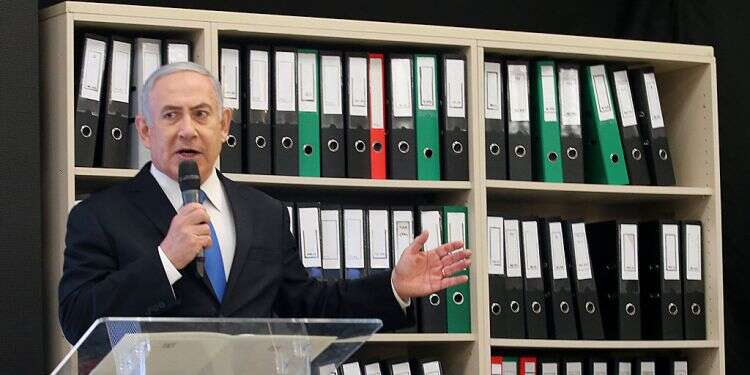Three years have passed since the Iranian nuclear archive was "stolen" in the early morning hours, only to reappear on stage as Prime Minister Benjamin Netanyahu presented them to the world at Israel's Defense Ministry headquarters in Tel Aviv.
Follow Israel Hayom on Facebook and Twitter
That was one of the more critical moments in the ongoing shadow war between Israel Iran, and some say the action, which has been attributed to the Mossad, is what led the US under then-President Donald Trump to unilaterally withdraw from the nuclear deal in 2018.
Yet there is another side to the story that is no less important: The International Atomic Energy Agency and the question as to how the special operation and the presentation of the materials from Tehran changed the IAEA's perspective if at all?
Olli Heinonen served in several positions at the IAEA before eventually taking on the role of deputy director-general for safeguards. In a conversation with Israel Hayom, he described the influence of the disclosure on the agency.
"The agency has an information verification mechanism that it received from a third party, something that is necessary to maintain the integrity and independence of the system," Heinonen explained.
He nevertheless emphasized that "we must remember that the IAEA has at its disposal some of this information from its previous investigations. The secretariat noted in Dec. 2015 that some of the questions raised concerning the possible military aspect were left unanswered or the answers were incorrect."
Heinonen said, "The IAEA found uranium particles in samples [from the military site] in Parchin. Under normal circumstances, such findings lead to surveillance. The council, at the urging of world powers, continued with the implementation of the agreement in the hope it would allow it to take care of some of the questions during the confrontation with Iran. This hope has faded."
According to Heinonen, there has been a change to the organization's conduct vis-à-vis the Iranian regime ever since Rafael Grossi was appointed IAEA head following Yukiya Amano's passing in 2019.
"As Amano's adviser, and later as the permanent representative for Argentina, he [Grossi] followed the slow progress of the IAEA's Iranian file. Based on that as well as his previous experience in the Organization for the Prohibition of Chemical Weapons, he understood early on that the IAEA's verification system was also at risk. The agency headed in new directions, but it may be that valuable information was lost due to Iran's disinfection operations.'"
As for the ongoing talks in Vienna to restore the 2015 nuclear deal, Heinonen said, "I hope the US's return to the agreement doesn't bring us back to yesterday. Iran's nuclear program is different from that of 2015. "
You can't win today's 'wars' with yesterday's tools," he said.
Subscribe to Israel Hayom's daily newsletter and never miss our top stories!




